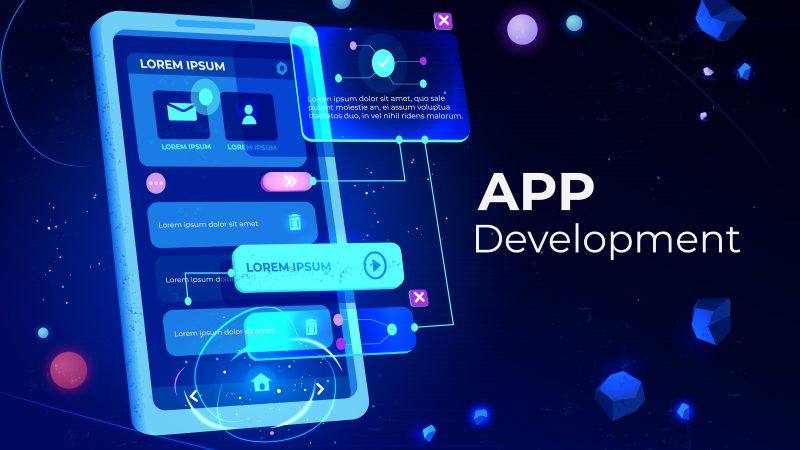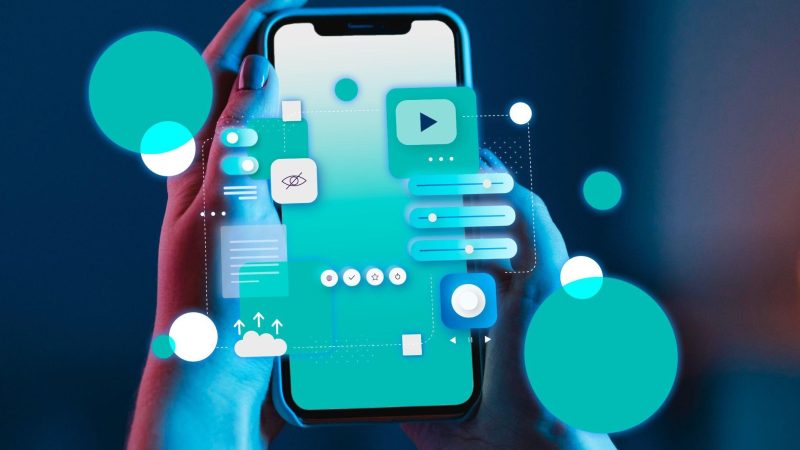App Developer Career: Android or iOS? Or Both?

The ubiquity of smartphones and mobile devices has made mobile development an in-demand skill. Now more than ever, there are more app developer positions than there are qualified professionals to fill them. According to the Bureau of Labor Statistics, the job outlook for software developers is 22% higher than any other positions over the next ten years. If you are into computer programming and are looking for a lucrative career with a bright future, the app development field is something you should seriously consider.
Mobile application development is an ever-growing market. In 2021, the global app market size was valued at around $582 billion, and in 2023, it is expected to grow to $935 billion. The volume of money generated by mobile apps is not surprising considering that mobile apps have several ways of creating revenue, such as through in-app advertising, in-app purchases, and paid downloads.
Although gaming apps remain the most popular types of applications, there are countless other apps available to mobile users such as business, education, lifestyle, utilities, entertainment, and more. According to developers of custom apps by Entrance, more and more companies are investing heavily in mobile apps to reach their target audience.
Behind all of these software solutions are app developers. It’s no wonder, mobile developers are sought-after and among the highest paying tech positions.
App Developers
App developers design, build, test, and deploy mobile applications. They can specialize in either Android or iOS mobile development, or both. Although app development follows the same processes regardless of the platform, each of these operating systems has its pros and cons.
Choosing which language to learn and a career path to take is a quandary that many aspiring mobile developers face. Should you learn Android or iOS? Or both?
Android App Developers
Android remains the leading mobile operating system with a 72% market share worldwide. Over a billion smartphones run on Android. Due to its massive adoption, there is an increased demand for Android developers. Depending on your experience, you can also earn as much as $144,000 annually for Android app development, which is slightly higher than what iOS developers earn.
Since Android is not linked to any specific hardware, it offers a welcoming environment for newbie app developers. Learning the programming language isn’t that tough either. Android development is easily customizable and feature-rich, thus making it easier to create apps. Open-source resources are readily available on the web, which is crucial as you advance in your career. There are both formal training as well as self-guided learning tracks that you can pursue as you learn the language.
Once you’ve mastered the programming platform, you can do freelance work anytime, so you are not stuck with software development companies.
Android does not have the exclusivity of iOS. It can be developed on countless hardware. In fact, numerous lesser-known mobile phone manufacturers have emerged and succeeded with their launch of Android phones. The widespread adoption of Android opened up plenty of opportunities for Android developers.
Without a doubt, Android has more reach with the masses, thus your applications are accessible to more users. With more users downloading your mobile app, you can tap various revenue streams.
Although Android development has a lot of benefits, it also comes with a few drawbacks. For one, the programming platform is ever-evolving, so you have to continuously keep up with these changes. And since Android runs various devices with varying screen sizes, developers take more time to develop and test a mobile application to ensure its compatibility with all of these devices. As such, if you plan to go as an independent developer, Android app development can be costly.
If you are unsure which programming platform to learn, you have to go with Android.
iOS Developer
iOS or iPhone OS has a market share of around 27% and is the second most commonly used mobile operating system. It is the operating system used by Apple phones and devices. Apple has a specific app development curriculum that aspiring developers can take to learn how to code in Swift. There are various Swift coding courses delivered both online and offline by learning partners. Every year, the company updates the operating system to ensure better usage.
Learning the iOS language offers several advantages. Compared to Android users, Apple users tend to spend more money on app purchases. Developing an iOS program is also easier since the applications are limited only to Apple products. Building and testing iOS apps are much faster. Likewise, the programming platform comes with an intuitive style guide that iOS developers can use. All of these boil down to cheaper app building processes.
However, considering the limited number of Apple users, iOS apps are not intended for the masses. Unlike Android, revenue streams for iOS apps are restricted to the app and in-app purchases. Apple also has stringent guidelines when it comes to app release. If your app fails to pass its metrics, such as performance, security, and value, the Apple marketplace will reject your app. Furthermore, the company carefully vets all apps by running real-life testing before the release.
That said, the iOS platform has so many restrictions that many might not find it a great place to start your career. Unless you want to join a software development company that requires iOS development skills, you might be better off starting a career with Android development.
All told, mobile development, either Android or iOS, has a bright future ahead. As more and more people use smartphones, investing in this skill is surely a great idea – especially if you are creative and you love to learn. Learning both languages unlocks more opportunities for you.






